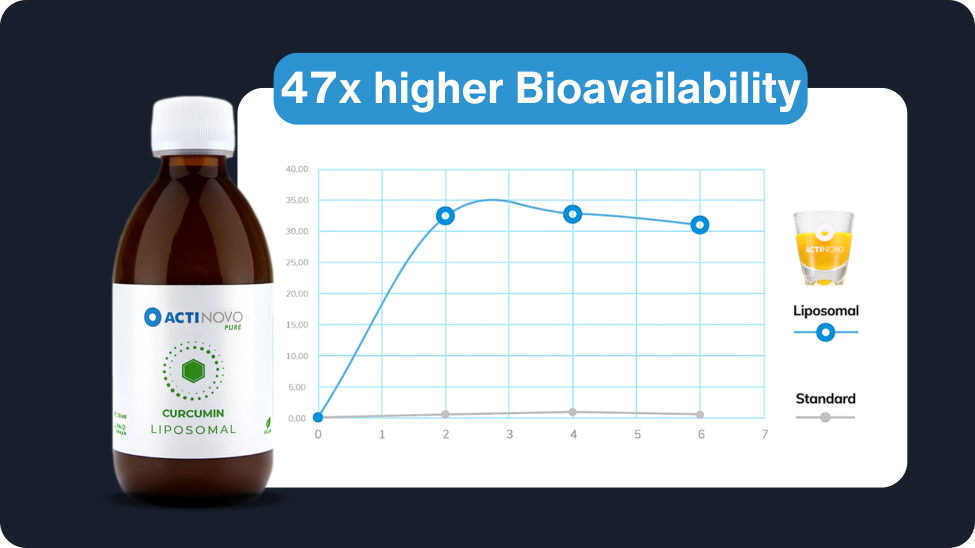Cart
Your cart is empty.
View cartimmune system
Beauty
Basics
Longevity
Sports & Energy
Stress & Exhaustion
Your cart is empty
Continue shopping
By ActiNovo Team

To evaluate the bioavailability of a liposomal curcumin supplement compared to a non-liposomal (standard) curcumin supplement.
The study was a two-group, randomized control trial.
Twenty healthy participants were enrolled in the study. They were randomly and evenly assigned to one of the supplementation groups. The participants were between the ages of 20-50 years old, did not have any chronic medical conditions, did not have any presence of acute illness, were within the normal BMI category (18.5-24.9 kg/m2), and did not use any drugs or dietary supplements on a frequent and/or mandatory basis.
Participants received their respective dosages of curcumin while fasting. Blood samples were drawn at baseline (before taking the supplement), and at hours 2, 4, and 6 after supplementation to evaluate curcuminoid concentration in the blood.
Results of this study show that liposomal curcumin supplementation has higher bioavailability than non-liposomal supplementation.

Leave a comment
This site is protected by hCaptcha and the hCaptcha Privacy Policy and Terms of Service apply.